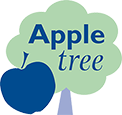Ask your readers if, and why, they are reading your e-newsletters
One of the key tools we use for our clients is e-newsletters. We plan, write and deliver these according to our clients marketing objectives. Read our blog on why e-newsletters are great for SEO. We always review their performance of the newsletters to ensure they are meeting their objectives. One of the ways we do this is sending out surveys and asking for reader feedback. Whilst feedback can be scary to read, it really is important to ask for it and act on the information you receive. Here’s an example of feedback we recently received from a survey we ran for a client.
Q: What do you like about our newsletter? What information do you find useful?
Responses:
– The information is helpful and constructive.
– It’s short, not too often and to the point.
– News is relevant to the industry.
– It’s short and to the point, not rambling.
– It’s clear, simple and short!
– It’s informal but informative, good for a general round up about a subject and helpful on keeping up to date.
– I find it interesting to see what’s on offer.
What does this tell us? It says that the newsletters we are sending are actually read, and gives an insight into why they are read – the fact that they are short and to the point must be applied to every issue. Generally, there are a few standard guidelines you need to apply when creating your newsletter strategy, which these responses follow along the lines of.
E-newsletters need to be well crafted and sent to the right people. Unlike paper newsletters, they are not a medium for lengthy and multiple information. E-newsletters should contain only one subject that is relevant, wanted, needed and interesting. If readers consider it good value, gain knowledge and can see how it would affect them and their business, they are then more inclined to look forward to the next issue. Your e-newsletter does not need to be full of content. Ideally one subject is adequate, as really it should be used to convey a valid point. Relevance is the key to successful content. Your email should be easy to scan so recipients can see what it’s about at a glance. You could tell your readership about a particular post you’ve uploaded onto your blog, where you can elaborate more fully, and also have the benefit of receiving comments as feedback. You should also ensure you always include an ‘unsubscribe’ option to avoid falling foul of the Data Protection Act.
Your readers – are they right for your newsletter, is the content of your newsletter relevant to them? You need to consider their time and how much is it worth. Are you providing information that is worth reading, offering time-value benefits to their business, providing contribution that stands out from the rest, presented in a punchy, poignant and potent method to make your audience think, understand, react and come back for more?
Have a clear call to action in the email. If you want recipients to respond, make sure the telephone number or web link is highly visible, appears early on and is repeated. Links should ideally connect to a dedicated and relevant landing page on your website, not just the home page. And remember to provide a ‘forward to a friend’ option. Existing customers can often be your best sales people.
Email may be ‘free’ but if you send the wrong messages, you risk losing customers. If you use an e-newsletter and want to hear from your readers if it’s hitting the right mark, contact us, we can help you create and send a survey, and apply the findings to your e-newsletter.




